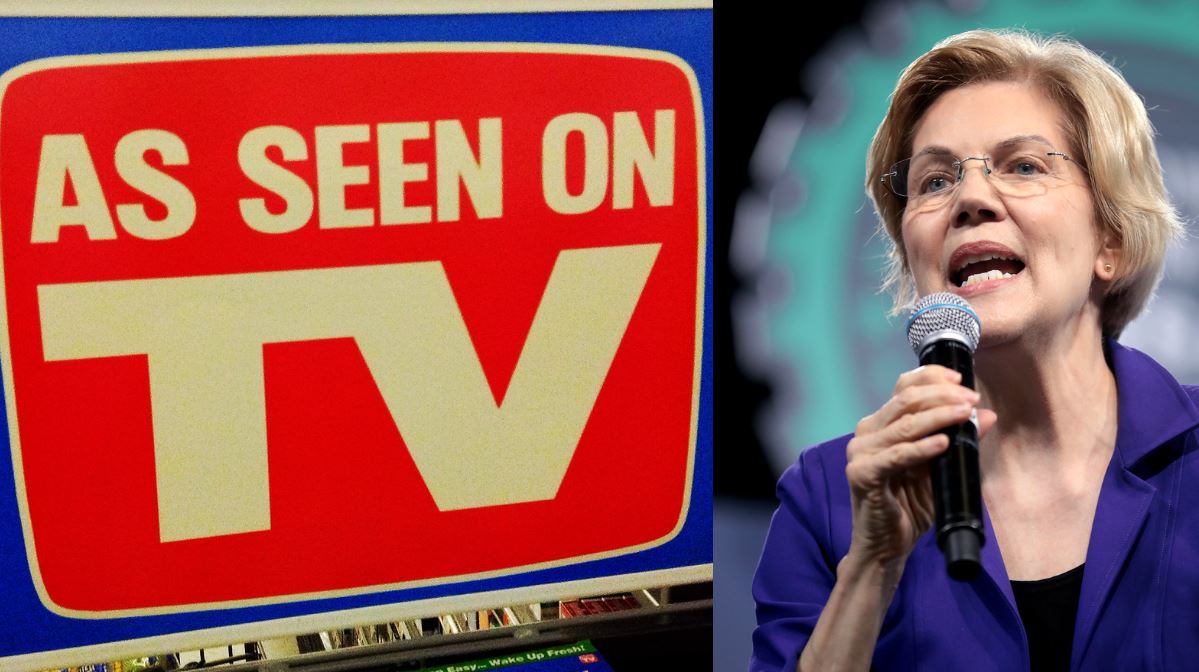If you’re like me, you dread presidential campaigns. With nearly a year and a half to go until the next election, we are already being inundated with banal sloganeering. It’s like being bombarded with advertisements for products you have no use for, have no desire to purchase, and yet are forced to choose which one you’ll use every day for the next four years.
Simple Problems, Simple Solutions
Modern political campaigns bear an uncomfortable resemblance to infomercials. You know the ones: a loud, fast-talking spokesperson appears on the television to point out a common problem. My kids drew on the walls, someone scratched my car, I wish my blanket had sleeves. Then they will excitedly offer a supposedly amazing solution. They’ll demonstrate their product and, viola!, the problem is solved.
This formula is used by most of the 2020 Democratic candidates. Both Elizabeth Warren and Bernie Sanders, for example, have promised to end the “student loan crisis” by “cancelling” the debt altogether. It’s the Mr. Clean Magic Eraser for education policy. One brush and the debt is wiped away! Of course, in reality the debt is not really “cancelled,” but merely transferred to American taxpayers as a whole. The magic eraser is illusory.
Andrew Yang’s campaign is the most transparently transactional. He wants to institute a universal basic income called the “Freedom Dividend.” Essentially his pitch is “Vote for me and when I’m elected I’ll give you all $1,000 a month!” He’s a used-car salesman offering that big rebate that you just can’t pass up. But buyer-beware: you’re probably being sold a lemon.
Easy Payments!
Once you’ve seen the product, you’d naturally like to know how much it’ll cost. Rather than give you the total, however, infomercials will wisely frame the cost in terms of monthly payments. Ten easy payments of $19.95 just sounds better than $120.
“Easy” is the operative word here. No matter how big the program, politicians invariably insist that it is easily paid for. It’s often the costliest policies that candidates express the most confidence about funding.
Take Elizabeth Warren’s voluminous policy agenda. She wants the federal government to provide free healthcare, free college tuition, and free daycare for children. Warren claims that she can pay for it all with her “ultra-millionaire” tax: a small wealth tax on the richest Americans. But it’s extremely doubtful that the tax will raise the necessary revenue. As Peter Suderman and John Ousterhoudt at Reason point out, several European countries have already tried implementing wealth taxes, finding only that it failed to bring in anywhere near the revenue they expected.
Despite his professed love of math, Andrew Yang’s big cash give-away also has funding issues. His plan is anticipated to cost $2.8 trillion, but his funding proposal – a 10 percent value-added tax – will fall about $1.2 trillion short.
But it’s not just the Democrats who have this problem. The greatest salesman of them all, Donald J. Trump, famously promised to build an expensive wall along the southern border, paid for by Mexico. Neither of these campaign promises have since materialized. Apparently, it was not as easy as the President’s marketing strategy implied.
Wait, There’s More!
One of the most well-known sales tactics is to throw in something extra at the end of the offer. You thought you were getting a good deal already, but now I’ll throw in an additional doohickey for the price of one!
For politicians, the extra goodie is usually economic growth. “My plan will accomplish X and it won’t cost you a dime! But wait, there’s more! It’ll also stimulate the economy!” Even if it’s not initially marketed as pro-growth, politicians will reflexively assert that their new policy will promote economic expansion.
You could pick any one of today’s most publicized policy proposals – from the Green New Deal to raising the minimum wage – and inevitably you will find someone touting economic growth as a positive side-effect. President Obama argued that the Affordable Care Act helped the economy by incentivizing entrepreneurship. Yang predicts that his “Freedom Dividend” will initiate spectacular growth, and Bernie Sanders has made similar claims about raising the minimum wage. It is a tiresome and disingenuous tactic.
The infomercial politics of our day is dreadfully shallow. Governing a nation is a difficult and complex task, one which requires honesty and humility, qualities that simply cannot be found amongst the snake-oil salesmen currently running for high office. For modern economic issues, there are no simple or easy solutions. Everything has a trade-off, no matter what 1-800 number politician is on the line.
—
[Image Credit: Flickr-Mike Mozart CC BY 2.0 (Infomercial-cropped), Flickr-Gage Skidmore CC BY-SA 2.0 (Warren-cropped)]















